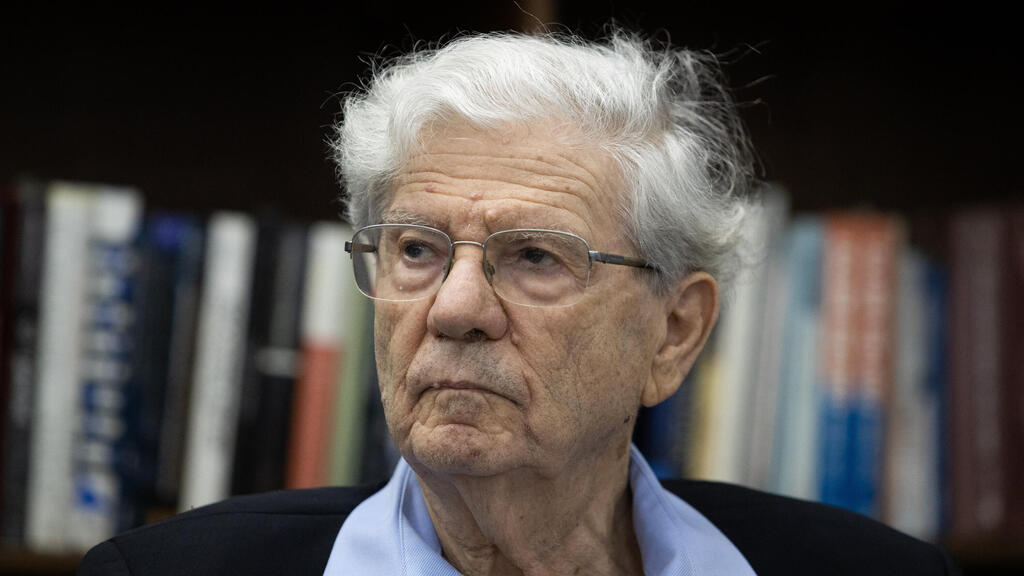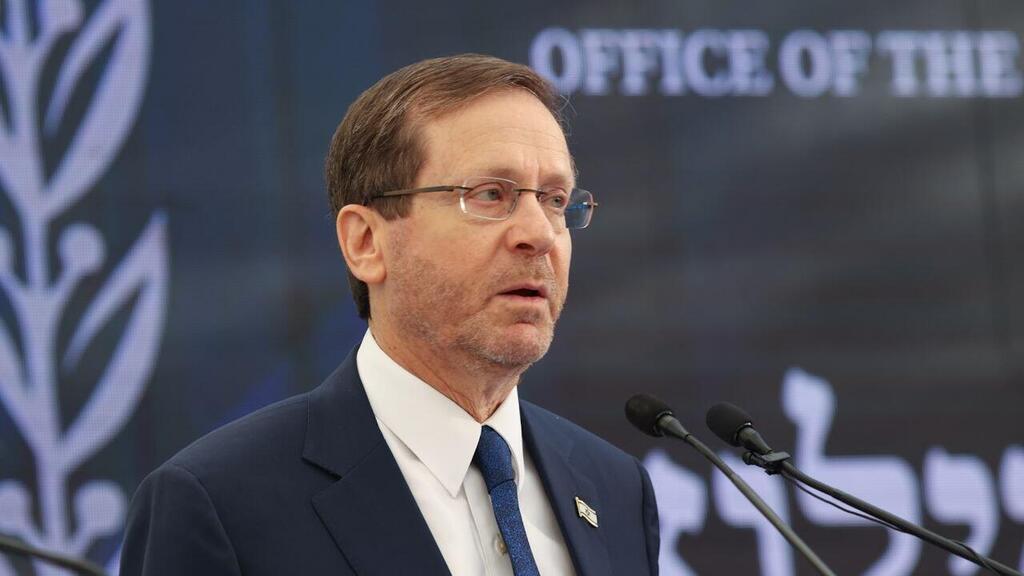Former Israeli Supreme Court President Aharon Barak called on protesters against the judicial overhaul to continue demonstrating and not to agree to compromises on key issues such as the appointment of judges and the abolition of the "seniority" system for the president of the Supreme Court.
More stories:
In a Zoom call organized by the leaders of the protest in Boston, in which participated dozens of students and faculty members from Harvard University, where Barak himself studied as a postdoctoral fellow in law, he said, "The protests abroad help us. It supports us in Israel. We trust that you are not doing this solely for personal reasons, but that you support Israel as a liberal democracy, as it should be, and we are a liberal democracy despite the occupation of the West Bank. I am in favor of compromise, but some things cannot be compromised. The committee for the appointment of judges is something we cannot compromise on. Once we compromise on that, we lose everything."
3 View gallery


Former Israeli Supreme Court President Aharon Barak says there can be no compromise on the appointment of judges
(Photo: Alex Kolomosiky)
"We need to sit down at the President's House, talk and find a way to resolve it," Barak added. "But those behind the judicial reform need to know that if they won't agree on anything, the number of protests will not decrease, it will only grow. Books will be written about this protest. There is a situation where 150 organizations have come together, and if support is needed at one point, someone will immediately come to fill that need. The protesters are well-organized, and they understand that they are fighting for the future of Israel as a democratic and Jewish state - also Jewish, and therefore you see religious protesters as well."
The former Supreme Court president noted that he is in constant contact with protest leaders and Israeli judges representing them, and he has spoken with President Isaac Herzog himself several times to advise on a compromise framework.
3 View gallery


Judicial reform protests will only grow if there is no compromise on judicial reform, Aharon Barak says
(Photo: Moti Kimchi)
In Barak's opinion, the current situation should be used to drive constitutional reforms. He said that he had sent a proposal to Herzog for a Basic Law to establish a constitution, within which the process of appointing judges would also be determined.
"What we deeply need is a basic law on how to make fundamental laws, and we don't have one," he explained. "We missed the opportunity in 1949 when the decision was made to draft a constitution. What we need now is to seize this constitutional moment we are currently in, where we can make crucial decisions on how to create a constitution, what its content will be, what its chapters will be, and more."
Barak noted that: "What we need is to dock the ship of the constitution in the port and build it from scratch. It doesn't mean that we need a whole new constitution right now. It's impossible because there are numerous issues that a full constitution needs to address, and we haven't discussed them in the country. It will take months and years – will we have a parliamentary or presidential system? Will we have one legislative body or two? What will be the electoral system? There are so many open questions."
3 View gallery


President Isaac Herzog is hosting the compromise talks on judicial reform
(Photo: Alex Kolomosiky)
"What we need to do is create a new basic law – to leverage this constitutional moment to determine what a basic law is, what happens to the previous basic laws, whether to interpret them according to the new or old system. I have prepared such a law for the president so that he will know what can be done and what I think should be done," Barak asserted.
"Our judicial system is now the best for our country," Barak argued, adding: "There is room for change. I hope that once we change our electoral system and parliament members are not only responsible for political appointments but also for the people who chose them, things will change dramatically. Ben-Gurion wanted to do this, but he failed to achieve it. We are now in a situation where what is happening in Turkey, Hungary, Poland - is very close, and we need to learn from their lessons."
Meanwhile, Judicial overhaul advancement by the Netanyahu government continues to take its toll - The IDF's special operations system has officially confirmed the departure of 80 additional reservists who have chosen to stop their voluntary service starting Sunday. This decision comes in addition to the significant number of reservists who have already opted out.
The graduates of Unit 8200 (Israeli Intelligence Corps unit of the Israel Defense Forces) in a statement declared that "our people will abandon the system." Their announcement follows the declaration made by hundreds of military doctors yesterday, emphasizing that any unilateral action taken by the government "will result in decisive and unilateral measures by the reserve doctors."
During the morning session of the Knesset's Constitutional Committee meeting Sunday, discussion centered around the proposed reduction of probable cause criteria in rulings of the High Court of Justice, which constitutes a significant part of the ongoing judicial overhaul. The committee meeting sparked renewed statements from reservists who vehemently oppose participating in what they deem as a "legal revolution."
The IDF's special operations forces were the first to bring attention to this issue, with a significant number of reservists having already ceased volunteering back in March. On Monday morning, they announced that "due to the loss of confidence in the current government and in addition to the hundreds of reservists who had already distanced themselves from the system in March, an additional 80 reservists holding crucial positions within the military formation have decided to immediately stop volunteering. More reservists are set to join our cause as the situation unfolds."


